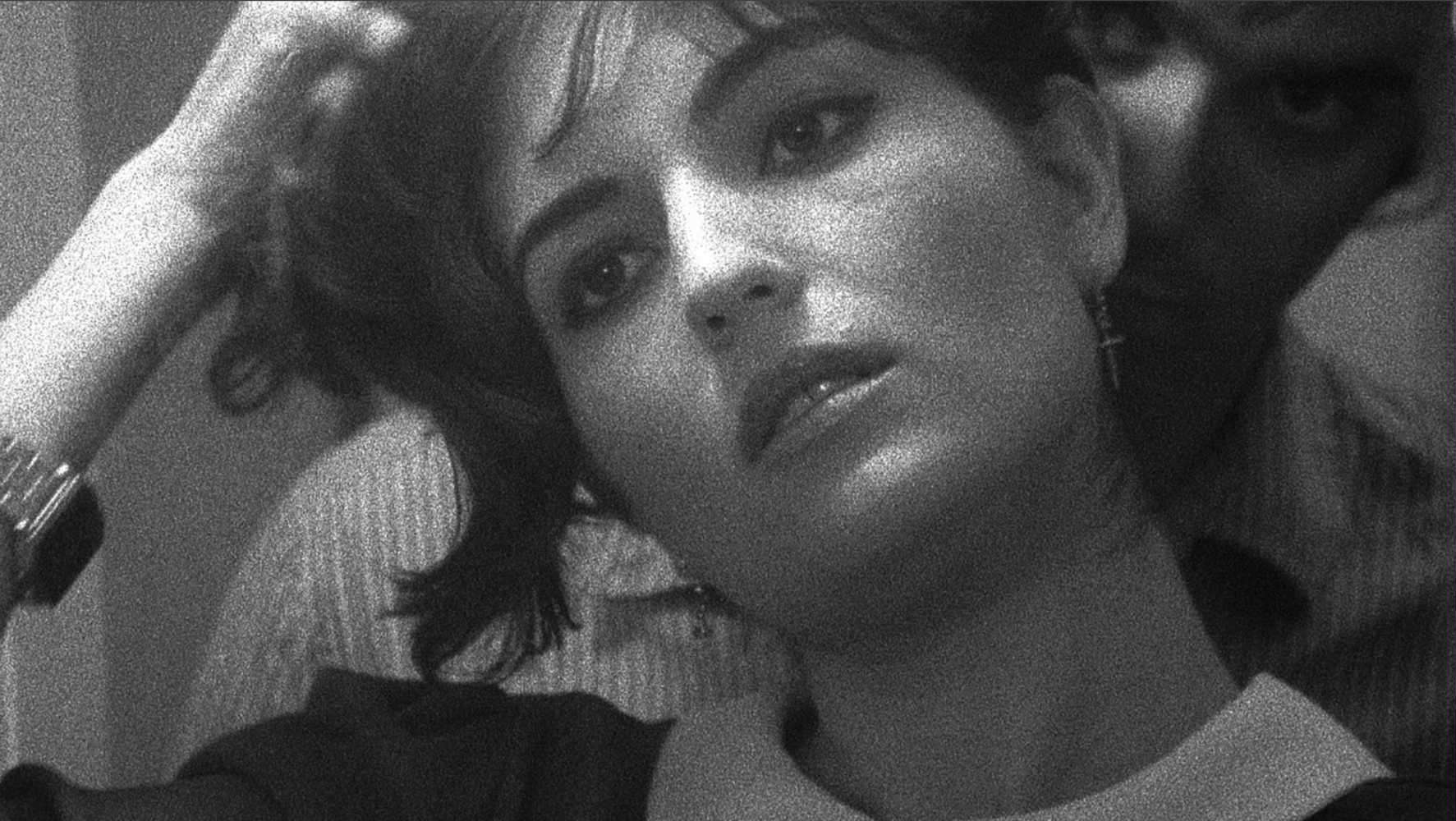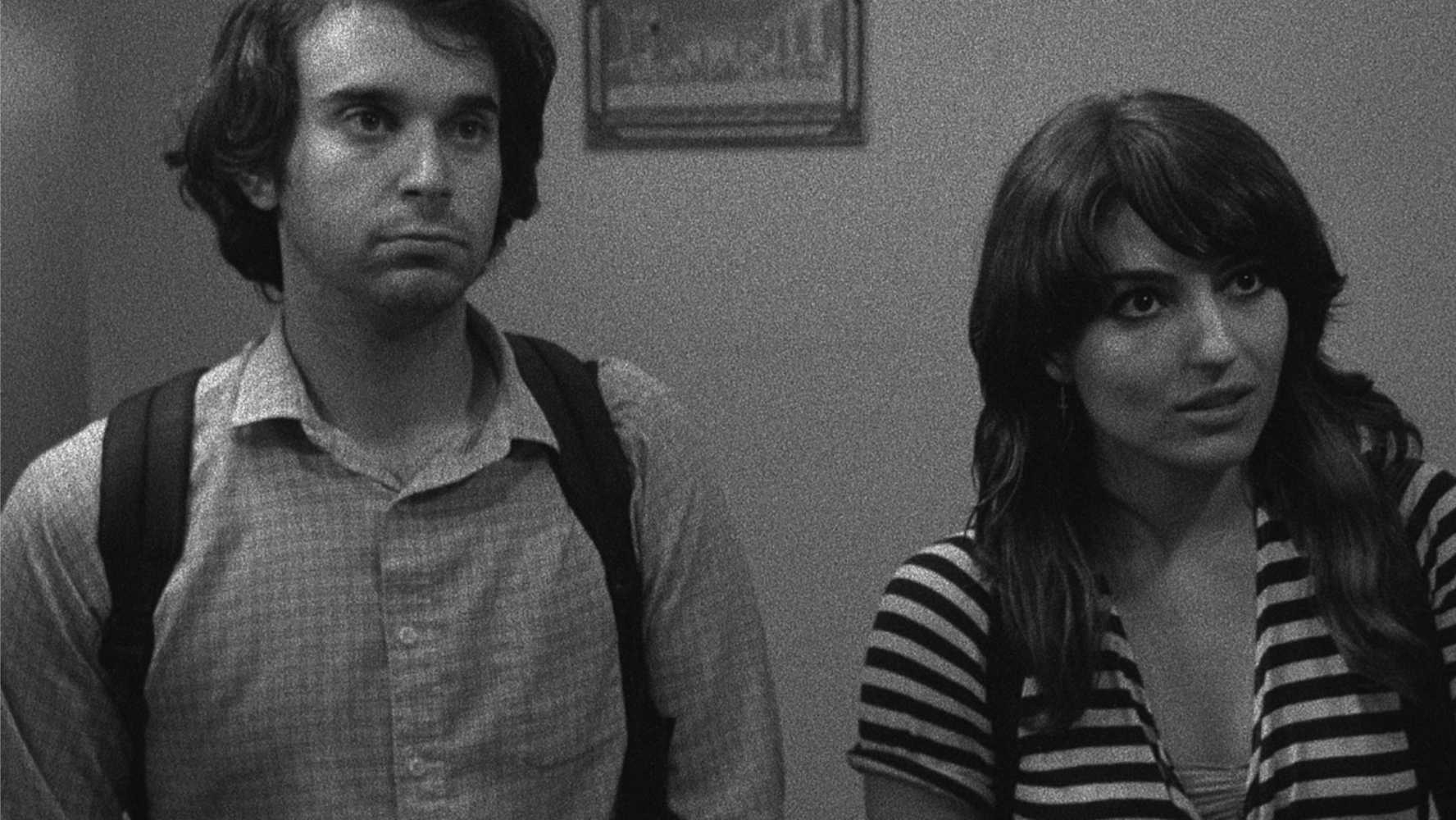
The Color Wheel
Discovered at its international première in the 2011 Festival del film Locarno’s Concorso Cineasti del presente section, The Color Wheel is young New York director Alex Ross Perry’s second feature film. It opens in France on August 1, distributed by Potemkine. Since its screening at Locarno The Color Wheel has been shown at numerous festivals all over the world, arousing enormous enthusiasm amongst international film critics. It was also distributed in the USA, again to very positive reviews. In France The Color Wheel already has numerous fans, including Leos Carax (Pardo d’onore Swisscom at the 65th edition of the Festival del film Locarno).
Alex Ross Perry is a complete auteur (actor, screenwriter, director) and his film is totally American, in both cultural and cinematic terms. This compulsively curious cinéphile has amassed an encyclopaedic and idiosyncratic knowledge of film by working in the legendary New York video club Kim, now closed. He is a fan of Jerry Lewis’s later films, such as Smorgasbord (1983).
The Color Wheel is an account of a journey undertaken by a brother and sister with a rather ambiguous relationship (a hint of incest, and embarassing situations). JR (Carlen Altman) has just left the professor with whom she has been having an affair. She asks her younger brother Colin (Alex Ross Perry) to accompany her on a road trip along the East Coast of the USA to go and pick up the things she left at his place. The problem is that JR and Colin do not get on that well, and this journey will end up teaching them how to be more tolerant of one another…
A lack of willpower, the desire to hold onto one’s dreams and learning how to forgive are some of the themes the filmmaker wanted to explore in The Color Wheel.
To give a better idea of The Color Wheel, Alex Ross Perry, and how the film came to be selected for Locarno, here is an unpublished interview I gave the Los Angeles Times journalist Mark Olsen during the Cannes Festival, for the American release of The Color Wheel (on which Mark Olsen wrote a very fine article).
We hope to hear more from Alex Ross Perry, who is a member of the Concorso Cineasti del presente section this year at Locarno, where his highly original feature film Impolex, an existential burlesque comedy, will screen in the “jury members” section.
Mark Olsen: When you programmed The Color Wheel, did you know it was having such a rough time in the US, being rejected by numerous festivals? Were you aware of what a leap it was for such a little, low-profile film to appear in your program? And do you have any understanding of why the film struggled to be shown, as a programmer can you see what about the film might have been turning off other programmers/festivals?
Olivier Père: I don’t think I was aware of the issues the film was having with U.S. festivals, but Mark Peranson, who’s on the Locarno Festival’s selection committee, certainly was. Personally I don’t regard such things as important, what matters to me is the impact of the film on the viewer, not what other people think about it. This profession requires you to give yourself up to a personal, emotional and aesthetic evaluation of a work that is completely free from previous critical assessment, not to give credence to prior opinions – positive or negative – or to the prejudices that a film can become tainted with, sometimes before people have really seen it, or even before it has been completely finished. Which is why the most important thing is to make sure there is direct contact with the filmmakers and producers who are making movies and who want to show them to us. It was Mark Peranson and Jake Perlin who first mentioned this film to me, which they really loved, so later I wrote to Alex and asked him to send me a DVD. I had noticed that it wasn’t at Sundance, because I go there every year, but I hadn’t paid much attention to the other festivals. In any case, the fact that a film has previously been rejected by one or more festivals, either in its home country or internationally, does not affect our decision-making. That can’t be a criterion either for selecting or for not selecting a film, because we all know full well that every year there are good movies which slip through the net at the major festivals. Just as every year there are dozens of low-budget independent movies by young directors coming out in the USA. But this one had something special. I find it strange that U.S. festivals failed to pick up on its qualities, and on the personality of its all-round director, the more so since Perry’s film is essentially American, on both the cultural and the filmic level. Happily, that injustice has since been compensated for and the film, whose career really started at the Locarno Festival, has been attracting attention ever since, gaining enthusiastic plaudits from U.S. movie fans.
MO: And what was it you responded to in the film? Why did you like it and decide to program it?
OP: The first time I watched The Color Wheel I was not overly impressed and I stopped it before the end. I was intrigued by the opening sequence, the quality of the black and white cinematography and the graphics of the titles, but after that I found the sheer amount of dialogue tiring. That was by no means the film’s fault – I love chatty films when the dialogue and the actors are good – it was entirely because I myself was tired. That shows how important it is to always listen to your colleagues when they insist on supporting a film, to watch it again so as to give it a second chance and make sure you don’t miss out on something big, something very well made. So I watched the film again and this time I was hooked, really impressed. I thought right away of Philip Roth, who’s my favorite living American writer, and of Vincent Gallo. And of Peter Bogdanovich – his films may not always come off, but he, too, has a cinephile’s strong ties with classic Hollywood comedy, getting the kind of fast-talking performances and spasmodically paced action that you had in Howard Hawks’ screwball comedies. Jerry Lewis also came to mind, because of the precisely framed shots and because here, too, the burlesque was based on situations featuring embarrassment and humiliation, with a strong sexual charge. I also thought Alex and Carlen Altman made a fantastic couple. She’s a superb comedian and highly photogenic. Every sequence with her is fantastic, and her voice is brilliant. In short, I thoroughly enjoyed my second viewing of the film and before the end I had already decided I would invite it to Locarno.
It’s not the first time it’s taken me a second bite at the cherry to be sure I like a movie, but after all it’s the end result that counts.
MO: Do you feel like Alex Ross Perry sort of stands alone among contemporary American Independent filmmakers, especially in his age-group? To my mind there really is no one else making films with his level of formal ambition, thematic provocation and literary influence. Are there even any international filmmakers you might compare him to?
OP: There’s a new independent scene coming to the fore in the U.S. at the moment which I find very exciting. Exciting because it really is independent, it’s not just about an attitude or a fad. There are talented young people putting out intelligent movies, made without much money but with a lot of astute feeling for storytelling and direction. You can sense that they’re cinephiles, too: they’ve watched films from all over the world (not only the U.S.), they have good taste and they’re not just dreaming of making it to Hollywood, making movies with the stars, or even of hitting the jackpot by coming up with a low-budget hit that rakes in millions at the box office.
Every big movement in film, whether it be France’s New Wave or the New Romanian Cinema of today, is always a blend of strong personalities, of very different individual natures. I found out that, like me, Alex is an obsessive cinephile, he has an erudition and a passion for the cinema that I like enormously. He has the kind of cinephile culture that comes out in the conversations I’ve had with Josh and Benny Safdie, or Vincent Gallo.
I’m very proud that I showed his film at Locarno, because I regard it as the strongest thing to have appeared on the landscape of young American filmmaking for a number of years. There was also a very important human dimension, too, in the same way as when I showed films by the Safdie brothers in the Directors’ Fortnight at Cannes in 2006 and 2008.
Because of his culture, his determination, his self-confidence and his ability to pull off ambitious and original movies against the odds, and also because of his provocative humor, I could compare Alex to the Spanish filmmaker Albert Serra. The two most recent films by these young directors are both in black and white, too, which is another point in common.

The Color Wheel


Laisser un commentaire